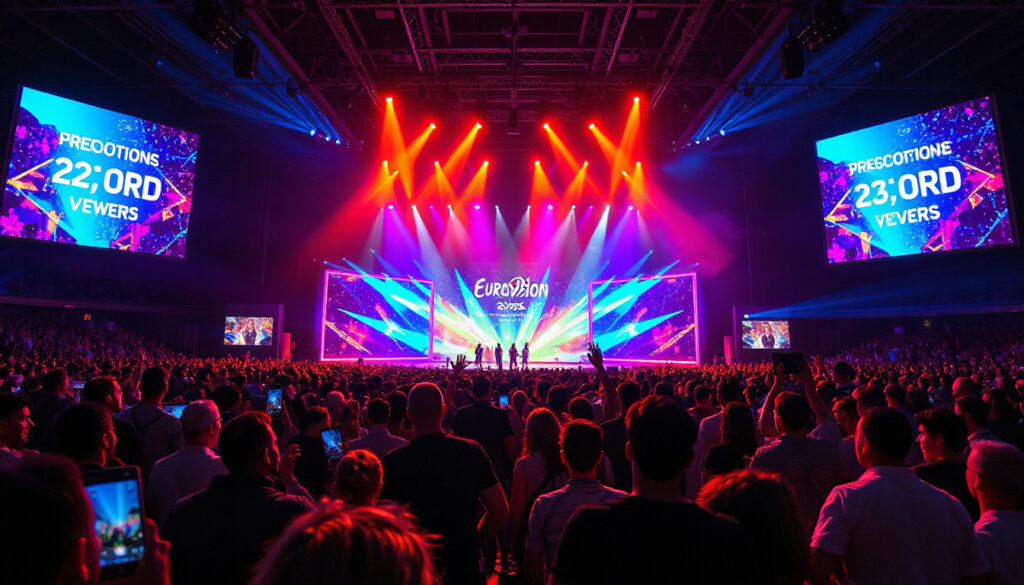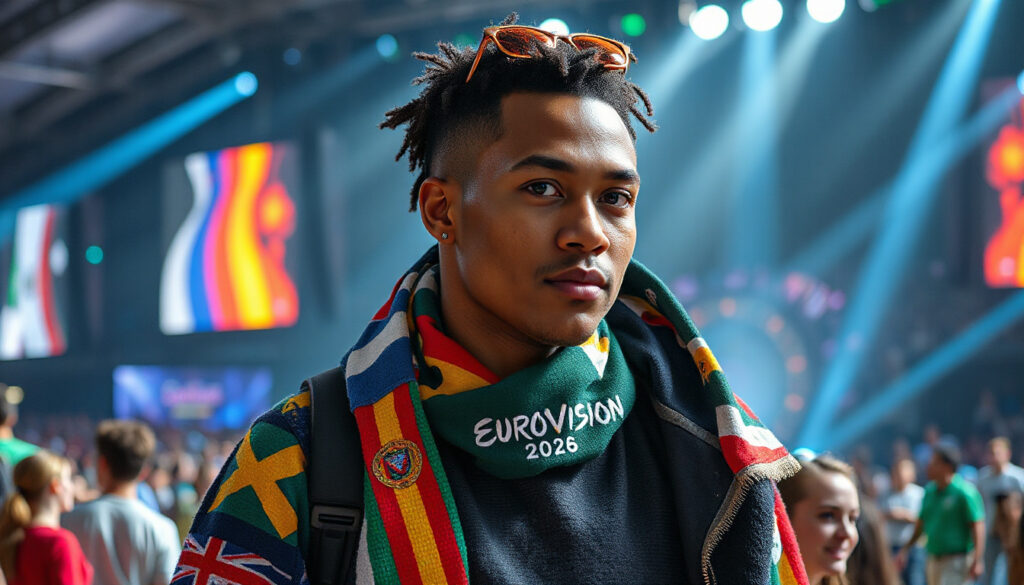Fierce Forecast: Predicting Eurovision 2026’s Viewing Surge
Every year, millions gather in front of their screens. They see excitement, dramatic turns, and a rich mix of cultures in the Eurovision Song Contest. Vienna will host Eurovision 2026. Many now ask if even more people will watch this time. What factors might push up the viewer count? Experts and fans both expect a rise in viewers, and they see shifts that may shape the event’s appeal.

What We Can Expect: Key Factors Boosting Eurovision 2026 Viewership
- Host City Appeal: Vienna’s Strong Eurovision Legacy
Vienna knows Eurovision well. In 1967 and 2015, the city hosted the contest. Vienna’s charm and skill in running big shows make it a trusted host. The Wiener Stadthalle, used in 2015, stands ready to stage a grand event. This close connection between the venue and high production values gives viewers a show to enjoy.
- Example: In 2015, Vienna celebrated the contest’s 60th year, drawing global attention.
- Why this matters: A familiar city with a strong history tends to pull in more viewers when its broadcast feels smooth and clear.
- Organizers’ Innovative Touches and Local Cultural Pride
Austria’s ORF TV team shined in Basel in 2024. The team mixes time-honored style with modern looks. Vienna’s long music history may join the stage with grand balls, orchestra shows, and creative staging. This mix can catch the eye of both long-time fans and newcomers.
- Example: In 2024, over 40,000 fans filled live stadium events, showing strong local excitement.
- Why this matters: New cultural themes add variety and bring fresh fans, which may push up overall viewership.
- Voting System Changes to Build Viewer Trust and Participation
In recent years, televotes have faced problems like vote manipulation. New voting rules and clear methods aim to fix this trouble. A setup where rules come close to every vote builds trust for the contest. When fans believe the vote is fair, many join the live poll. This step may boost the number of viewers at the moment.
- Potential impact: Fair rules can win more live voters, which in turn may grow the live audience.
- Renewed Interest from Major “Big 5” Countries and Use of Native Languages
Trends now show countries such as France and Italy in strong play. Many entries bring their own languages to the song stage rather than using English all the time. This choice gives the contest a fresh touch and may pull in audiences who value clear cultural roots.
- Why it’s significant: Fans enjoy authenticity, and songs sung in native tongues may widen the contest’s appeal worldwide.
- Expansion of the Contest’s Fan Base via Interactive Platforms
Online hubs like Reddit and Discord flourish every year. These platforms allow fans to talk in real time and share their excitement. Such close online chats spread the word quickly and build anticipation. This buzz often guides more viewers to watch the event live.
- Statistic: Eurovoix’s Super Early Eurovision Predictions gathered 305 fans from 49 countries, showing a wide and active audience.
- Why this matters: A strong online buzz can spark more live viewing when the event begins.
Viewer Predictions Backed by Data and Fan Insights
Surveys and prediction games give hints about what may come. Many casual fans expect the Grand Final to fall on May 16. This date fits a schedule that viewers know and trust. The strong vote for Vienna as host builds on past experience. Early numbers and feedback suggest that the Wiener Stadthalle will deliver a steady performance. With 305 predictions coming from nearly 50 countries, global interest grows clearly.
Why Eurovision’s Traditional Timing Matters for Viewership
Setting the Grand Final on the third Saturday of May matches tradition. A fixed day helps viewers plan a night of fun and builds a yearly habit. These habits help keep viewing numbers steady and growing.
- Historical comparison: In 2015, a Vienna contest on May 23 showed strong viewer numbers.
- Viewer behavior: Saturday evenings free many people from work or school, which naturally brings more eyes to the screen.
What Challenges Could Impact Viewing Figures?
A few issues might lower the number of viewers:
- Voting system issues: If the new rules feel confusing or are not explained well, some fans might feel left out.
- Host city issues: If Vienna faces local problems or if political news shifts public mood, it might lower excitement.
- Competition from online trends: With many choices on the internet, Eurovision must keep its charm to hold the interest of younger viewers.
What Should Fans and Industry Watchers Do Next?
For fans eager to join the Eurovision 2026 experience:
- Join early chats on fan platforms: Talking in prediction games and lively discussions grows the fun.
- Mark your calendars for May 16: Plan a viewing night with friends or family to enjoy every moment.
- Look for Vienna’s local fan events: Keep an eye out for meet-ups or viewing sessions. These add a warm, community feel to the contest.
For broadcasters and producers:
- Add local cultural segments to the broadcast: Use Vienna’s long music history to tell stories that pull viewers in.
- Explain voting changes in simple words: Clear talk about vote updates helps build trust and participation.
- Listen to fan feedback: When friends of the contest share their thoughts, their views can guide improvements in the show.
Final Thoughts on Eurovision 2026 Viewing Figures Predictions
Eurovision 2026 aims to win the hearts of both old fans and new viewers. Vienna shows it can host a great show, and new cultural spins and fair voting steps boost hopes for high numbers. Fan energy, paired with smart online and broadcast plans, points to more viewers than before.
If you want to join in on this musical night, follow the latest updates, join lively discussions online, and get ready for a celebration that connects millions through song and culture.







